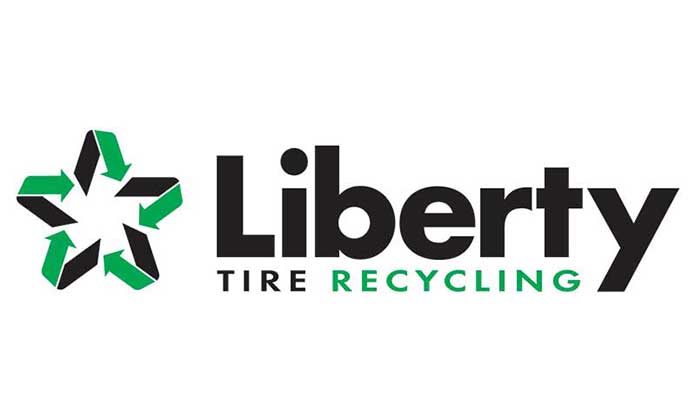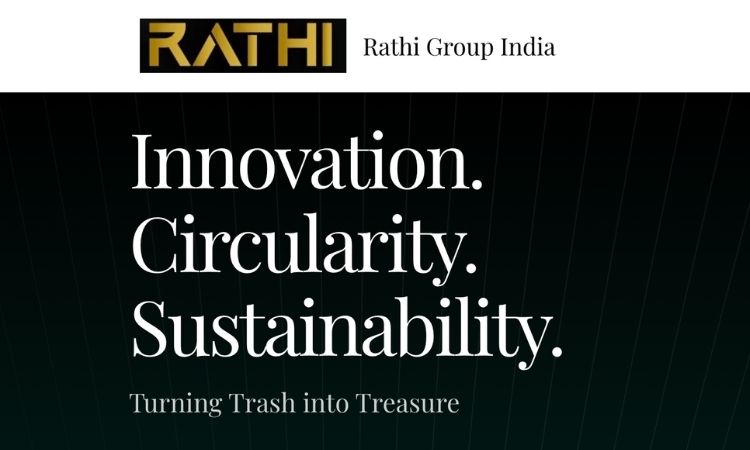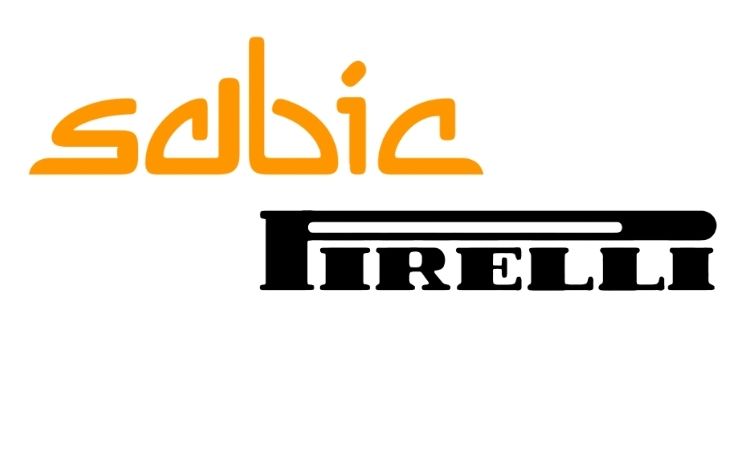Weibold Academy: All Academy Articles from 2023 at a Glance
Weibold Academy article series discusses periodically the practical developments and scientific research findings in the end-of-life tire (ELT) recycling and pyrolysis industry.
These articles are reviews by Claus Lamer – the senior pyrolysis consultant at Weibold. One of the goals of the review is to give entrepreneurs in this industry, project initiators, investors and the public, a better insight into a rapidly growing circular economy. At the same time, this article series should also be a stimulus for discussion.
For the sake of completeness, we would like to emphasize that these articles are no legal advice from Weibold or the author. For legally binding statements, please refer to the responsible authorities and specialist lawyers.
JANUARY 2023: ELT Pyrolysis - a Best Available Technology (BAT)
This comprehensive overview discusses the concept of Best Available Technology (BAT) in waste management, focusing on End-of-Life Tires (ELT) pyrolysis. It covers the international context, including the Basel Convention guidelines for ELT management. It emphasizes the classification of ELT pyrolysis as environmentally sound management, referencing European Union regulations and the U.S. Environmental Protection Agency's recognition. The Tire Industry Project (TIP) is introduced as a global initiative addressing ELT impacts. Our article outlines the perspectives on ELT management, highlighting the emerging theme of pyrolysis and its potential for resource conservation and emissions reduction. Despite inconsistent classifications, ELT pyrolysis is recognized as a valuable approach, contributing to a circular carbon economy.
FEBRUARY 2023: EU adopts revised rules governing shipments of waste
Our February article discusses the global waste trade, emphasizing the EU's role in exporting and importing significant amounts of waste. It highlights challenges in the current regulatory framework, particularly the Waste Shipment Regulation (WSR), which faces inconsistencies and issues such as illegal waste shipments. The WSR is under review to align with the European Green Deal and Circular Economy Action Plan. Proposed amendments aim to enhance transparency, strengthen rules for waste exports, and prevent illegal shipments. Expected impacts include economic savings, improved environmental conditions, and job creation, aligning with the EU's circular economy goals. The conclusion emphasizes the need for a well-functioning waste shipment market that prioritizes proximity, self-sufficiency, and the best available waste management techniques, calling for alignment with the EU's circular economy objectives.
MARCH 2023: The superiority of chemical recycling via pyrolysis for ELTs
The Joint Research Council (JRC) of the European Commission published a study in February 2023 comparing the environmental and economic aspects of chemical recycling (pyrolysis) and energy recovery for end-of-life tires (ELTs). The study concludes that chemical recycling via ELT pyrolysis, including mechanical recycling for feedstock processing, is more sustainable than energy recovery via incineration. The JRC study builds on earlier research, highlighting advancements in pyrolysis technologies and the environmental benefits of chemical recycling. The findings indicate that chemical recycling provides net savings in particulate matter, acidification, and fossil resource use, making it superior in net savings across all three impact categories.
APRIL 2023: EU environmental authorities making the circular economy work
IMPEL, a non-profit association of environmental authorities from EU countries, aims to enhance environmental law enforcement. The Waste Management and Circular Economy (WMCE) project focuses on aligning waste practices across Member States, offering guidance and tools. The project encourages a shift from regulatory compliance to environmental benefits, emphasizing public-private collaborations. It recognizes challenges and supports regulators, policymakers, and businesses in the circular economy transition. The Make-it-Work guidance assists regulators in understanding EU law, improving effectiveness, and fostering collaboration. IMPEL's WMCE project is a significant step towards standardized waste practices for a circular economy, emphasizing flexibility based on national circumstances.
MAY 2023: Common Sustainability Certificates for the ELT Pyrolysis Industry
The 2009/28/EC directive promotes renewable energy in the EU, setting national targets. The 2018 update, Renewable Energy Directive 2018 (2018/2001), reinforces these targets. ISCC certifies global sustainable feedstocks, emphasizing traceability and social sustainability. Ecoloop focuses on the circularity and sustainability of products, promoting waste-based feedstock use. Cradle-to-cradle certification evaluates products' environmental, social, and economic impacts. EMAS is a voluntary environmental management instrument focusing on organizational environmental performance. ELT chemical up-cycling companies benefit by showcasing a commitment to sustainability, complying with regulations, improving environmental performance, accessing new markets, and gaining a competitive edge.
JUNE 2023: EU Directives to promote clean technologies delayed
EU’s renewable energy targets are translating into directives with substantial implications for various industries. The Energy Taxation Directive (ETD) and Renewable Energy Directive (RED) are pivotal in the European Union's (EU) energy policy. The revised ETD, addressing energy product taxation, aims to align with EU climate policies. However, its implementation, expected in January 2023, faces delays. The revised RED sets targets for renewable energy use, contributes to climate goals, and has undergone trialogue negotiations. Both directives, if enacted, can bolster the circular economy by promoting clean technologies and discouraging fossil fuel use. Delays may hinder progress toward a low-carbon economy. The EU's focus on these issues is crucial for the ELT waste processing sector, supporting chemical re/up-cycling and increasing demand for sustainable products like recovered Carbon Black and tire-derived pyrolysis oil. Addressing these matters promptly is essential for achieving climate and environmental objectives.
JULY 2023: The true circularity for end-of-life tires
Pyrolysis, an advanced chemical recycling method for End-of-Life Tires (ELTs), is gaining traction, driven by global sustainability efforts. ELT pyrolysis, recognized as a game-changer, employs molecular breakdown in an oxygen-free environment, producing valuable outputs like tire-derived oil (TDO), recovered carbon black (rCB), and gases. Recent authorities' recognition, such as the U.S. EPA and the European Chemical Agency, is expected to accelerate its adoption. Projects like the EU-funded BlackCycle® or BASF’ ChemCycling® further validate its significance. TDO, a product of ELT pyrolysis, is emerging as a vital precursor for high-value chemicals, while rCB offers a sustainable substitute for fossil-based carbon black. The chemical upcycling of ELTs through pyrolysis supports circular economy goals, waste management, and de-fossilization, positioning it as a crucial technology for a sustainable future.
AUGUST 2023: ELT pyrolysis – a remarkably accurate vision from 1993
The 1993 conference paper, "A multiple-product approach to the processing of used tires" by Michal A. Serio and colleagues, foresaw the chemical recycling boom for End-of-Life Tires (ELTs) through pyrolysis, aligning with today's trends. The authors proposed pyrolysis-based recycling to generate valuable products such as activated carbon, carbon black, and fuels. Challenges highlighted the need for a chemical process to convert tires into commodity materials. The predicted pyrolysis products included gases, oils (TPO), and solid carbon residues (rCB), reflecting the current demand for sustainable alternatives. The paper anticipated applications in waste-water treatment, landfill stabilization, and organic solvent recovery, aligning with modern developments in circular economy strategies. The concept of producing carbon black from pyrolysis oils is validated today by major producers and EU projects like BlackCycle®.
SEPTEMBER 2023: (Un)sustainable ‘Sustainable Development Goals’?
This article addresses a publication that claims that sustainable development promotes environmentally damaging neoliberal growth, exacerbates inequalities, and neglects biodiversity. It proposes an alternative rooted in indigenous onto-epistemology, "Buen Vivir," urging a re-evaluation of environmental law to shift from a centered, anthropocentric paradigm to one embracing ecological sustainability. Sustainable development, entwined with neoliberalism, is seen as perpetuating socio-ecological harm. The authors advocate for a radical shift in environmental law, drawing inspiration from Buen Vivir, which prioritizes well-being, reciprocity, and non-hierarchical ecological relationships. The critique emphasizes the need for a profound transformation to address Anthropocene challenges.
OCTOBER 2023: Entering the big game. Navigating Due Diligence
This article discusses the growing trend of substantial investment in End-of-Life Tire (ELT) pyrolysis projects by funds, family offices, banks, and industrial companies. As these projects move toward industrial-scale operation, they face challenges such as Due Diligence, technology readiness, site permitting, feedstock procurement, material testing, off-take agreements, data room establishment, and corporate structure setup. Due Diligence is a critical phase for companies seeking investments. It recommends that project initiators be aware of investors' risk mitigation requirements, adequately plan and prepare legal, commercial, and financial aspects of their projects, and remain flexible. Funding institutions are advised to recognize the unique risk profiles of the tire up-cycling industry and appreciate the contributions of sustainable projects.
NOVEMBER 2023: Taxonomy - Why to invest in ELT-Pyrolysis projects
The EU aims for a climate-neutral economy by 2050, investing 1 trillion euros over the next decade. The EU Taxonomy and SFDR regulations ensure equal competition and legal certainty. The Taxonomy Regulation sets criteria for ecologically sustainable economic activities, impacting companies' reporting obligations. Initially applying to companies with 500+ employees, it will expand to those with over 250 employees by 2026. For the ELT pyrolysis industry, alignment with the Taxonomy provides benefits, such as increased investor appeal, access to green financing, and compliance with regulations. Investing in this sector supports sustainability goals and economic profitability.
Weibold is an international consulting company specializing exclusively in end-of-life tire recycling and pyrolysis. Since 1999, we have helped companies grow and build profitable businesses.









